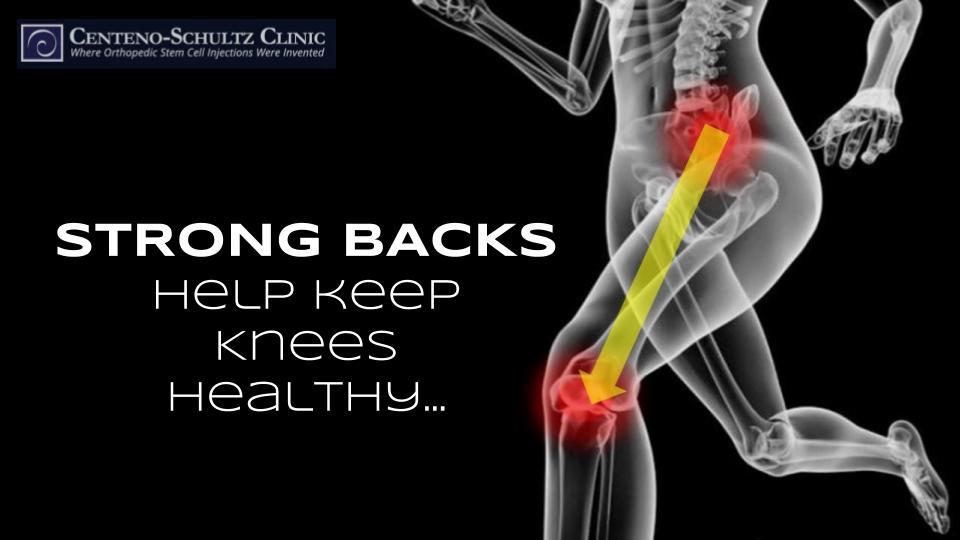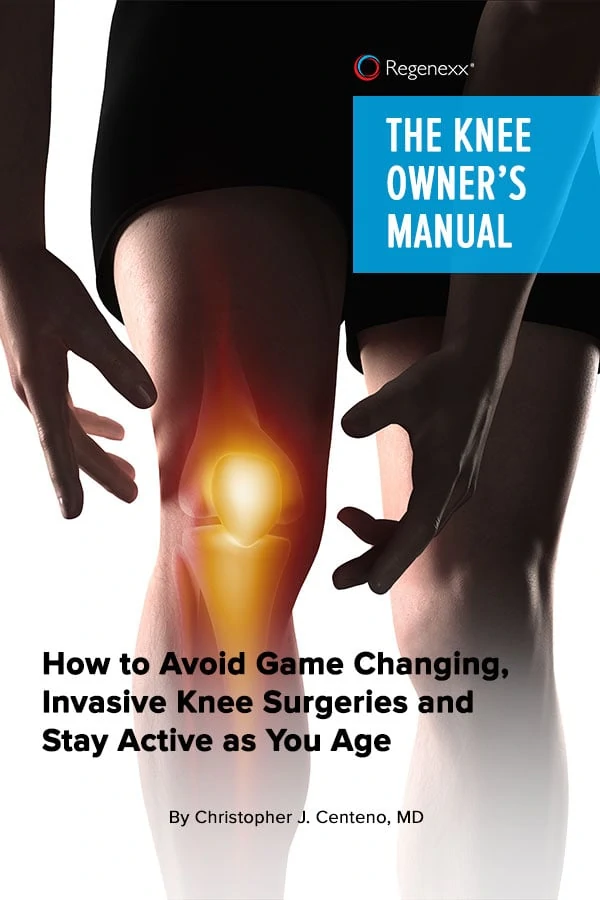Want healthy knees? It seems the writer of the classic song “Dem Bones” really knew a thing or two about the musculoskeletal system. In fact, he may have known more than our modern orthopedics care system as instead of understanding that the “knee bone’s connected to the thigh bone” and “the thigh bone’s connected to the hip bone” and so on, traditional orthopedics is so hyperspecialized that it focuses on the body in individual parts and pieces. Your back hurts? There’s a spine doc for that. Your toe hurts? There’s a foot and ankle doc for that…
The problem with this thinking is that the body functions as one interconnected unit or machine, with each part contributing to and affecting the whole. If one part becomes weak or injured, it can affect the rest of the body machine. Today, we’re going to highlight a study that supports this, specifically as it relates the knee bone’s connection to the back bone—yes, the knee really is connected to the back.
Understanding the Connections
For many years now, we’ve observed a connection between strong backs and healthy knees, and knee issues in patients with back problems. In fact knee issues, particularly knee arthritis, are very common in patients with chronic low back pain. The part of the knee that seems to be most often affected in these back pain patients is the patellofemoral joint (at the front of the knee). Why? The glutes and hamstrings muscles, which run down the thigh, are innervated by the nerves that branch off of the lowest part of the low back, and these low back nerves are the ones most commonly affected by back issues.
These nerves also supply the multifidus muscles, which are critical low back stabilizing muscles, and the paraspinal muscles, which are active in back arching, side bending, and trunk rotation. Learn more about the multifidus muscle by watching Dr. Centeno’s short video (right):
When the multifidus, paraspinal, or other back muscles become weak or their contractions are off due to nerve issues, the quadriceps muscles in the legs jump in and try take over certain functions. This exhausts and weakens the leg muscles, and from here, the knee cap takes up the slack and becomes overworked. The eventual result? A knee joint with burned out cartilage…all because an issue in the spine weakened a critical muscle in the back.
The Knee Bone Is Connected to the…Back Bone?
When we talk about knee arthritis, osteoarthritis (OA) is the type we are usually referring to, as rheumatoid arthritis (RA), for example, is an entirely different disease. OA is a common degenerative condition; this means the protective cartilage in the joint breaks down over time from wear and tear on the joint. RA, on the other hand, occurs due to an autoimmune disease where the immune system attacks its own joints.
Knee OA is often associated with weak leg muscles, but one study found weak back muscles may also be at play. Researchers compared those with knee OA to those without and found that those with knee arthritis paraspinal back muscles that were smaller. They concluded that these weaker back muscles were a contributing factor in the patients’ knee arthritis.
So it really does seem that one thing you can do for healthy knees is to keep your back nice and strong. As we’ve seen time and time again, irritated spinal nerves can weaken the back and other muscles, such as the glutes and hamstrings, and can affect any part of the interconnected body machine—the knee, hip, ankle, foot, and more. Likewise, an injury to the foot, knee, and so on, can work its way up the kinetic chain and cause problems in the spine as well. All “dem bones” really are connected!
How we treat the body is very much informed by the concept of the “interconnected body machine,” which can be gleamed from our approach to evaluating pain, called the SANS Evaluation. Our treatment for knee pain may also have a conjoined recommendation for exercise and physical therapy for your back.

